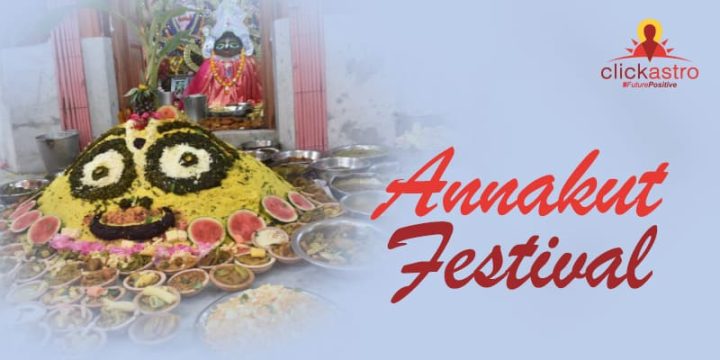Introduction
India, with its rich tapestry of cultures and traditions, is a vibrant amalgamation of festivals that reflect the country’s diverse heritage. Each festival tells a story and carries significant meaning, representing the values and beliefs of its people. Among these cherished celebrations is Annakut, also known as
Govardhan Puja or Annakut Utsav.
This festival holds special significance for believers, as it symbolizes gratitude towards Lord Krishna and reverence for the bountiful gifts of nature. Celebrated with immense enthusiasm and devotion across the country, Annakut is not only a time for spiritual reflection but also a celebration of community and togetherness. Families come together to prepare an elaborate feast, embodying the spirit of sharing and cooperation. As devotees express their thanks for the harvest and the sustenance provided by Mother Nature, Annakut serves as a beautiful reminder of the interconnectedness of life and the blessings that nourish us all.
What is Annakut?
The term “Annakut” translates to “a mountain of food,” which encapsulates the essence of this vibrant festival. Annakut is celebrated primarily to express heartfelt appreciation for Lord Krishna’s divine protection and guidance. As a significant occasion in the
annual calendar, it emphasizes the vital connection between humans and the environment, acknowledging the blessings of agriculture and the abundance it brings to our lives. This festival serves as a reminder of the interdependence of nature and humanity, underscoring the importance of cultivating a harmonious relationship with the Earth.
Annakut also embodies the spirit of community, unity, and cooperation among people. Families and friends gather to prepare an extravagant spread of various dishes, symbolizing gratitude for the sustenance provided by Mother Nature. The act of cooking and sharing food fosters a sense of belonging and togetherness, as individuals come together to celebrate their collective blessings.
In essence, Annakut is not just a celebration of food; it is a reflection of gratitude, compassion, and the shared responsibility of caring for the environment. Through this festival, devotees express their thanks to the divine and reaffirm their commitment to nurturing the bonds of community and the gifts of nature.
When is Annakut Celebrated?
In 2024, Annakut will be celebrated on November 2, Saturday, following the main
Diwali festivities. It falls on the first lunar day of the bright fortnight (
Shukla Paksha) in the Hindu month of Kartik.
Origins and Mythological Significance
The origins of the Annakut festival are deeply embedded in ancient history, particularly in the Bhagavata Purana, a revered text that narrates the life and teachings of Lord Krishna. The festival centres around a compelling story of Lord Krishna’s victory over Indra, the king of the gods, and the subsequent worship of Mount Govardhan.
According to legend, the residents of Gokul, a village where Krishna spent his childhood, traditionally performed elaborate rituals to appease Indra, seeking his blessings for a bountiful harvest. Indra, known for his pride, demanded worship and sacrifices in exchange for favourable weather and agricultural abundance. However, Lord Krishna, in his wisdom, advised the villagers to redirect their devotion towards Govardhan Hill, which provided them with fertile soil and abundant resources. He emphasized that true sustenance came not from appeasing the gods but from the blessings of nature itself.
Taking Krishna’s guidance to heart, the villagers defied Indra by preparing a grand feast, creating a mountain of diverse food offerings in honour of Govardhan. This act of devotion enraged Indra, who felt slighted by their defiance. In retaliation, he unleashed a ferocious storm, intending to punish the villagers for their disobedience. However, Krishna displayed his divine powers by lifting the Govardhan Hill on his little finger, using it as an umbrella to shield the villagers from the torrential rains and floods.
Witnessing Krishna’s unparalleled strength and the unwavering devotion of the villagers, Indra ultimately recognized Krishna’s supremacy and conceded defeat. The Annakut festival commemorates this legendary event, serving as a profound reminder of the importance of recognizing and appreciating the gifts of nature and the strength found in faith and unity. Through this festival, devotees celebrate not only the triumph of Lord Krishna but also the vital connection between spirituality and the natural world.
Celebrations and Rituals
The Annakut festival is celebrated with a rich array of rituals and customs that may vary by region, but they generally encompass several key practices that reflect the festival’s spiritual essence and communal spirit.
1. Preparation of Prasad:
At the heart of the Annakut celebration is the preparation of a lavish spread known as Chappan Bhog, which translates to “fifty-six offerings.” This consists of 56 different dishes made from a variety of grains, vegetables, and other ingredients. Common preparations include wheat, rice, green leafy vegetables, and gram flour curry, among others. The sheer abundance of food symbolizes gratitude towards Lord Krishna and Mother Nature, showcasing the blessings of harvest and the importance of sustenance. Families often come together in the kitchen, fostering a sense of collaboration and love in the preparation process.
2. Worship and Offerings:
On the day of Annakut, devotees partake in a ceremonial worship of Lord Krishna. The ritual begins with bathing the idol of Krishna in milk, symbolizing purification and reverence. The idol is then adorned with vibrant clothes and beautiful jewellery, making it a focal point of devotion. Following this, the Chappan Bhog is presented as an offering to Krishna, expressing gratitude for his divine protection. The worship includes the Govardhan Aarti, a ceremonial lighting of lamps accompanied by singing and chanting of prayers. This vibrant atmosphere of devotion fosters a deep spiritual connection between the devotees and the divine.
3. Sharing and Community Spirit:
Once the rituals are complete, the Annakut Prasad is distributed among family and friends, emphasizing the spirit of community inherent in the festival. This act of sharing is not merely a tradition; it signifies the festival’s values of unity and compassion. By sharing the offerings, families foster a sense of togetherness, reminding everyone of the importance of supporting one another, especially those in need.
4. Special Observances in Varanasi:
In the sacred city of
Varanasi, the Annakut festival is particularly grand, dedicated to Goddess Annapurna, the deity of food. Devotees gather at the Annapurna Mandir, where they offer prayers and a variety of food items. A unique aspect of this celebration is the focus on sharing the offerings with the less fortunate, reinforcing the themes of gratitude and compassion that are central to Annakut.
5. Cultural Activities:
The festivities often include engaging cultural activities, such as drama recitals that narrate the enchanting childhood stories of Lord Krishna. These performances add a vibrant cultural dimension to the celebrations, captivating the audience and instilling a sense of connection to the rich heritage of ancient history. The integration of art and culture not only enhances the celebratory atmosphere but also educates the younger generation about the significance of their traditions.
Spiritual Significance
Annakut transcends the boundaries of being merely a festival of food; it embodies a spiritual significance that encourages reflection on the blessings of sustenance and the importance of sharing with those who are less fortunate. The festival serves as a reminder that food is not just a physical necessity but a gift from Mother Nature, symbolizing the abundance and resources that surround us.
The elaborate preparation of a vast array of dishes during Annakut is more than just a culinary endeavour; it is a thanksgiving ritual dedicated to expressing gratitude for the blessings received throughout the year. Each dish prepared represents a token of appreciation for the earth’s bounty and the nurturing role of nature in sustaining human life. This act of cooking and sharing food fosters a sense of community and belonging, reinforcing the values of cooperation and kindness.
The legends surrounding Annakut further instil essential virtues of humility and gratitude among devotees. They remind participants that even amidst abundance, it is crucial to acknowledge the source of their blessings and to extend their generosity to those in need. In many households, sharing the Annakut Prasad with neighbours, friends, and the less fortunate is a common practice, emphasizing the importance of compassion and empathy in daily life.
Moreover, it is believed that celebrating Annakut invokes the grace of Goddess Annapurna, the deity of nourishment and abundance. Devotees trust that honouring her through this festival will bless their families with prosperity and ensure that they are never faced with scarcity of food. By engaging in this celebration, families not only express their gratitude but also cultivate a deeper spiritual connection to the divine and to one another. Ultimately, Annakut serves as a powerful reminder of the interconnectedness of all beings and the responsibility to nurture and support one another through shared abundance.
Conclusion
The Annakut festival exemplifies the connection between spirituality, nature, and community, serving as a celebration of life itself. It is a time when individuals come together to express gratitude for the blessings they have received throughout the year, fostering a spirit of unity and cooperation among family, friends, and neighbours. This festival highlights the importance of compassion and sharing, encouraging participants to acknowledge the abundance of food that nourishes both their bodies and souls.
As we prepare to celebrate Annakut this year, let us fully embrace these values, reflecting on the generosity of nature and the divine. In sharing the rich offerings of Chappan Bhog with those around us, we strengthen our bonds and uplift our communities. May the blessings of Lord Krishna and Goddess Annapurna fill our homes with joy, prosperity, and an enduring sense of togetherness, ensuring that the spirit of Annakut continues to resonate in our lives long after the festivities have concluded.



